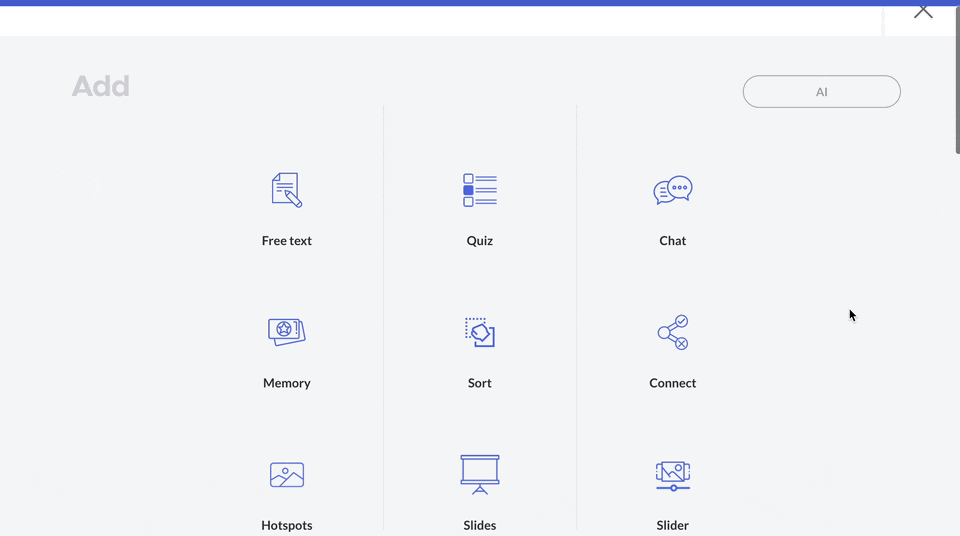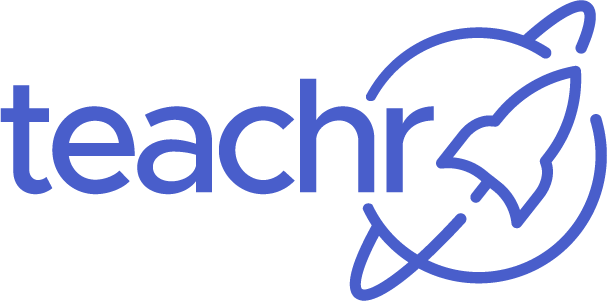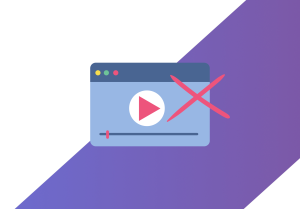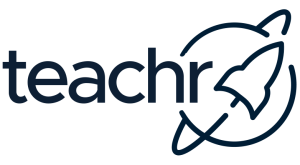A modern Learning Management System (LMS) is essential for facilitating effective and engaging learning experiences. Traditional systems like Moodle, while pioneering in their time, often fall short in several key areas that are crucial for contemporary education needs.
Traditional learning systems, reliant on physical classrooms and fixed schedules, are increasingly being supplemented by the flexibility and accessibility of online courses. Traditional education requires students to be present at specific times and locations, whereas online courses offer the convenience of studying at one’s own pace from anywhere. Many studies today conclude that the Blended Learning concept achieves much better learning outcomes and increases satisfaction and a global accessibility broadens educational opportunities.
Physical textbooks in traditional learning for example are being more and more replaced by affordable and easily accessible digital materials. Maintaining physical campuses is resource-intensive, a burden lessened by the growth of online education.
Older Learning Management Systems (LMS) in traditional setups are now seen as slow, highly insecure, and outdated. Traditional teaching has long dominated education, preventing older systems from evolving into the modern interactive age of information.

Problems with Traditional LMS Platforms
- Complicated Installation and Maintenance
- Traditional LMS platforms often require complex installations and ongoing maintenance. This can be a significant burden for institutions lacking extensive IT resources. Schools and universities may find themselves spending more time troubleshooting technical issues than focusing on education.
- Traditional LMS platforms often require complex installations and ongoing maintenance. This can be a significant burden for institutions lacking extensive IT resources. Schools and universities may find themselves spending more time troubleshooting technical issues than focusing on education.
- Security Issues
- Hosting an LMS on your own servers can expose institutions to highly problematic security risks. Without robust cybersecurity measures, sensitive data such as student records and coursework can be vulnerable to breaches. This is an area where traditional systems like Moodle can be lacking, as they often depend on the institution’s own security protocols.
- Hosting an LMS on your own servers can expose institutions to highly problematic security risks. Without robust cybersecurity measures, sensitive data such as student records and coursework can be vulnerable to breaches. This is an area where traditional systems like Moodle can be lacking, as they often depend on the institution’s own security protocols.
- Limited Support
- Traditional LMS platforms often come with limited support options. Institutions are left to rely on their internal IT teams or community forums for troubleshooting, which can be inefficient and unreliable.
- Traditional LMS platforms often come with limited support options. Institutions are left to rely on their internal IT teams or community forums for troubleshooting, which can be inefficient and unreliable.
- Lack of Engagement
- Many traditional LMS platforms offer a limited range of learning tools, often confined to text, videos, and basic quizzes. This can lead to disengagement among students who are accustomed to more interactive and visually stimulating content in other aspects of their digital lives.
- Many traditional LMS platforms offer a limited range of learning tools, often confined to text, videos, and basic quizzes. This can lead to disengagement among students who are accustomed to more interactive and visually stimulating content in other aspects of their digital lives.
- Outdated User Interfaces
- The dashboards and interfaces of traditional LMS platforms can be clunky and unintuitive. A poor user experience can hinder both educators and students, making the learning process more cumbersome than it needs to be.
- The dashboards and interfaces of traditional LMS platforms can be clunky and unintuitive. A poor user experience can hinder both educators and students, making the learning process more cumbersome than it needs to be.
The Advantages of a Modern LMS
- High Security and Reliability
- Modern LMS platforms are typically backed by secure cloud service providers, ensuring that data is protected with advanced encryption and security measures. This not only safeguards sensitive information but also offloads the burden of security management from educational institutions.
- Modern LMS platforms are typically backed by secure cloud service providers, ensuring that data is protected with advanced encryption and security measures. This not only safeguards sensitive information but also offloads the burden of security management from educational institutions.
- Ease of Use and Accessibility
- With quick setup times and user-friendly interfaces, modern LMS platforms are designed to be intuitive. This accessibility means educators can spend more time teaching and less time managing the system.
- With quick setup times and user-friendly interfaces, modern LMS platforms are designed to be intuitive. This accessibility means educators can spend more time teaching and less time managing the system.
- Interactive and Engaging Content
- Advanced LMS platforms offer a range of interactive tools such as 3D visuals, virtual reality, and gamified learning experiences. These features help to keep students engaged and enhance their learning experience.
- Advanced LMS platforms offer a range of interactive tools such as 3D visuals, virtual reality, and gamified learning experiences. These features help to keep students engaged and enhance their learning experience.
- Auto-Generation AI
- One of the standout features of modern LMS platforms is the incorporation of Auto-Generation AI. This technology streamlines the course creation process, automatically generating educational content based on the instructor’s input. This saves significant time and effort, allowing educators to focus on delivering high-quality teaching.
- One of the standout features of modern LMS platforms is the incorporation of Auto-Generation AI. This technology streamlines the course creation process, automatically generating educational content based on the instructor’s input. This saves significant time and effort, allowing educators to focus on delivering high-quality teaching.
- Comprehensive Support
- Modern LMS providers typically offer robust support, including 24/7 customer service, detailed documentation, and community forums. This ensures that any issues can be resolved quickly and efficiently.
- Modern LMS providers typically offer robust support, including 24/7 customer service, detailed documentation, and community forums. This ensures that any issues can be resolved quickly and efficiently.
teachr: The Best Brand New LMS of 2025
Among the new generation of LMS platforms, teachr stands out as a leading choice for educators and institutions. Here’s why teachr is revolutionizing e-learning in 2025:
Cost-Effective and Cutting-Edge
teachr combines affordability with state-of-the-art technology, making it accessible for schools and universities of all sizes. Its features provide a dynamic and efficient virtual campus, ensuring a high return on investment. teachr starts at just $9 per month and can be scaled with storage, courses, and students, regardless of the number of participants. It offers low costs for small schools and maximum scalability at the touch of a button.
Engaging Learning Experiences
teachr transforms education into an adventure. It supports 3D visuals, learning games, 360° vistas, and Augmented Reality, offering students an immersive and interactive learning environment that goes beyond traditional text and videos.
Seamless Course Creation with Auto-Gen AI
teachr’s Auto-Generation AI simplifies course creation, automatically generating comprehensive and engaging curricula from the educator’s input. This innovative feature drastically reduces the time and effort needed to develop courses, enabling educators to concentrate on what they do best—teaching.
Extensive Media Library
teachr provides access to a vast library of license-free images and 3D models. Educators can enhance their courses with high-quality visuals, all of which can be used legally and at no additional cost.
Rewarding Student Achievements
teachr encourages a positive learning environment by allowing educators to design custom merchandise to reward students for their achievements. These rewards are automatically produced and shipped, adding a personal touch to the educational experience without any additional hassle or cost for the institution.
Robust Security and Compliance
teachr prioritizes data security and privacy, employing multi-layer encryption and ensuring full GDPR and privacy compliance. This means that all user data is protected and managed with the highest standards of security.
Quick and Easy Setup
With teachr, you can launch your virtual campus in minutes, even without technical expertise. Its intuitive design and ease of use make it accessible for all educators, streamlining the process of creating and managing online courses.

Join a Thriving Community
teachr is already being used by hundreds of educational institutions worldwide. By joining this community, you become part of a network that values innovation, security, and the limitless potential of learners. teachr is designed with educators in mind, making the creation and delivery of online courses both simple and enjoyable.
As the best brand new LMS in 2025, teachr addresses the shortcomings of traditional systems by offering a secure, engaging, and easy-to-use platform. With features like Auto-Gen AI, immersive learning tools, and robust support, teachr is redefining the future of education. Embrace the potential of modern e-learning with teachr and provide your students with an unforgettable educational experience.





